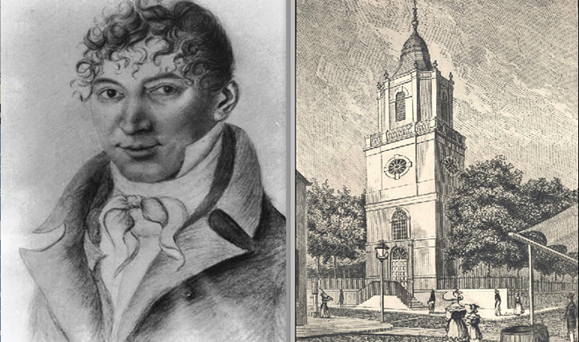1813 brought the first test of the right of free religious practice and expression in the United States. The famous case, People v. Philips, which eventually solidified the priest-penitent evidentiary privilege that protects the privacy of information given during confession, was argued in New York City on behalf of the growing Catholic population by the exiled Irish Protestant William Sampson.
Sampson, having seen the legacy of religious intolerance in Ireland, argued that U.S. law should not look across the Atlantic for legal precedent in dealing with Catholics. He argued the case on behalf of the trustees of St. Peter’s Roman Catholic Church on Barclay Street in New York.
In commemoration of the case, Glucksman Ireland House (GIH) at New York University has organized “Religious Freedom in America, 1813 to 2013: Bicentennial Reflections on People v. Philips,” a weekend of events that examine the intersections of Ireland and America in the foundation of our national culture.
On April 12th, the case itself will be dramatically re-enacted at Glucksman House, adapted for the stage from Sampson’s own accounts by playwright Steve DiUbaldo.
Following the staged reading, Saturday the 13th brings a day-long symposium to GIH, featuring numerous interdisciplinary speakers, including retired Irish High Court Justice Bryan McMahon and Professor Walter J. Walsh of the University of Washington, Seattle, School of Law, and panels to discuss the legacy of the case and the ways in which it is still relevant to contemporary issues.
On Sunday the 14th, a morning pilgrimage will be made to Green-Wood Cemetery in Brooklyn to pay respects to the graves of Sampson and the judge who ruled in his favor, New York City Mayor De Witt Clinton.
For further information, contact Miriam Nyhan by email or by phone at 212.998.3953.
200 Years of People v. Philips and Religious Freedom

William Sampson, the Irish Protestant who argued People v. Phillips; A sketch of old St. Peter's Roman Catholic Church on Barclay Street in NY.

Leave a Reply